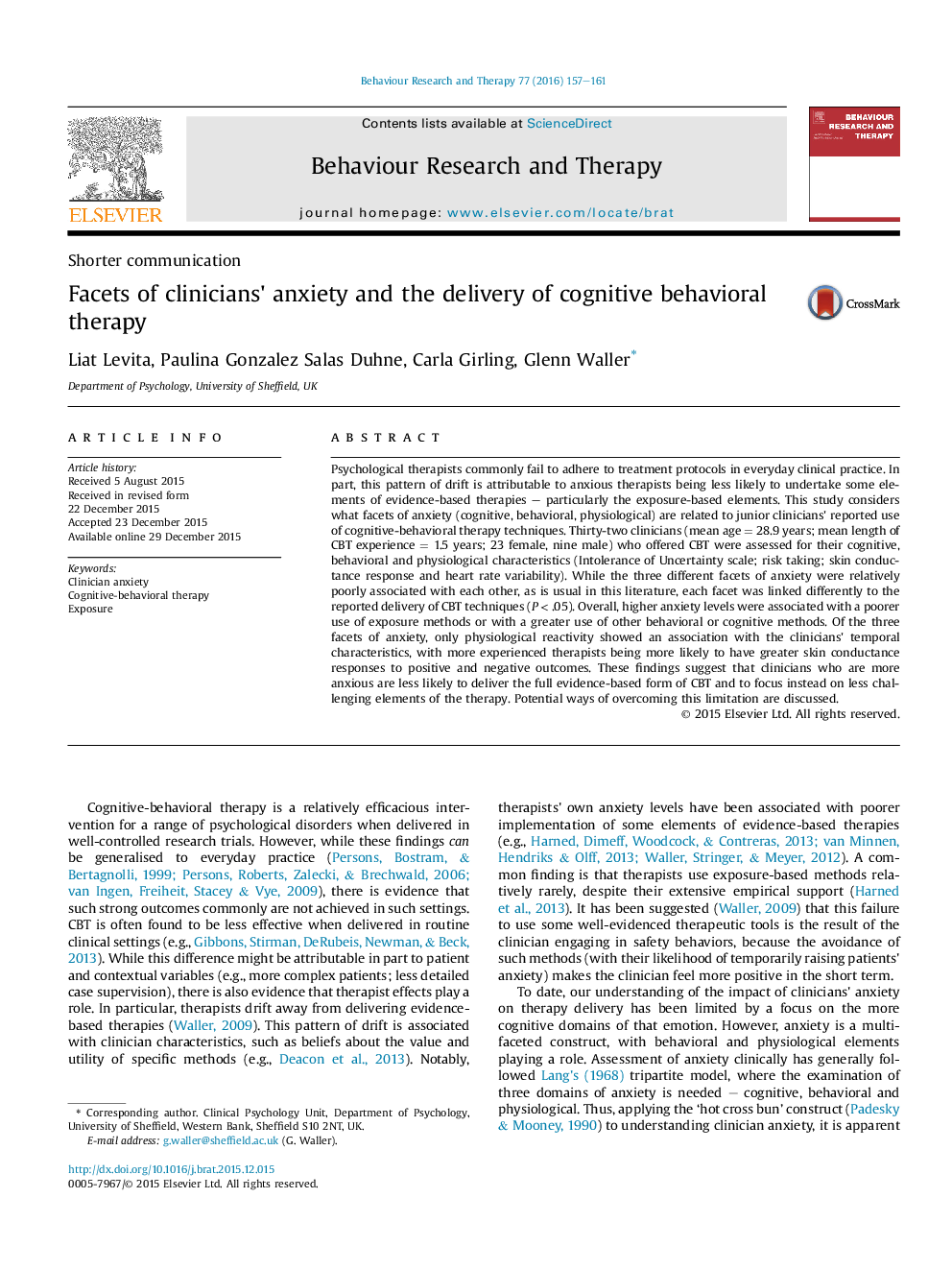| کد مقاله | کد نشریه | سال انتشار | مقاله انگلیسی | نسخه تمام متن |
|---|---|---|---|---|
| 901805 | 1472772 | 2016 | 5 صفحه PDF | دانلود رایگان |
• Junior clinicians' anxiety is associated with their use of core CBT techniques.
• Different facets of clinician anxiety have different impacts on the use of exposure.
• Attention should be paid to clinicians' anxiety during training and supervision.
Psychological therapists commonly fail to adhere to treatment protocols in everyday clinical practice. In part, this pattern of drift is attributable to anxious therapists being less likely to undertake some elements of evidence-based therapies – particularly the exposure-based elements. This study considers what facets of anxiety (cognitive, behavioral, physiological) are related to junior clinicians' reported use of cognitive-behavioral therapy techniques. Thirty-two clinicians (mean age = 28.9 years; mean length of CBT experience = 1.5 years; 23 female, nine male) who offered CBT were assessed for their cognitive, behavioral and physiological characteristics (Intolerance of Uncertainty scale; risk taking; skin conductance response and heart rate variability). While the three different facets of anxiety were relatively poorly associated with each other, as is usual in this literature, each facet was linked differently to the reported delivery of CBT techniques (P < .05). Overall, higher anxiety levels were associated with a poorer use of exposure methods or with a greater use of other behavioral or cognitive methods. Of the three facets of anxiety, only physiological reactivity showed an association with the clinicians' temporal characteristics, with more experienced therapists being more likely to have greater skin conductance responses to positive and negative outcomes. These findings suggest that clinicians who are more anxious are less likely to deliver the full evidence-based form of CBT and to focus instead on less challenging elements of the therapy. Potential ways of overcoming this limitation are discussed.
Journal: Behaviour Research and Therapy - Volume 77, February 2016, Pages 157–161
